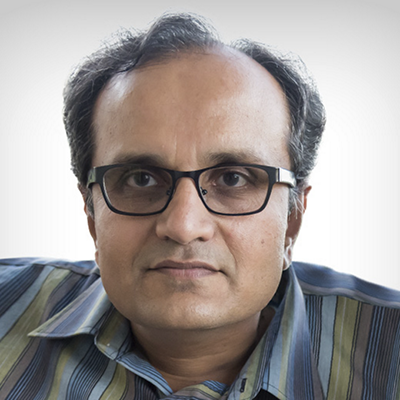Cloud native EDA tools & pre-optimized hardware platforms
The conference, held in San Diego, Calif. on March 5-9, is the largest global conference and exhibition for telecom and data center optics, with approximately 12,000 attendees and 500 exhibitors. OFC includes technical sessions, courses, and exhibitions that focus on research and the latest industry applications.
Topics at this yearˇŻs conference covered photonic modulation formats and receiver concepts, standards for high-speed optical networking, modeling and simulation of coherent communications, secure optical communications, high-speed lasers and modulators, networking for datacenters and machine learning, photonics for quantum key distribution, photonics for sensing, and much more.

Synopsys participated as an exhibitor in the conference and showcased several new features of its OptoCompiler photonic IC design automation platform along with demonstrations of performance and interoperability successes of its 224G and 112G Ethernet PHY IP solutions, respectively. Synopsys demonstrations included:
- Synopsys OptoCompiler Python-based scripting and automation capabilities
- Synopsys OptoCompiler electronic/photonic schematic-driven-layout IC co-design flow
- Synopsys IC Validator electronic/photonic layout-vs-schematic and design rule checking flow
- Synopsys PrimeSim and OptSim electronic/photonic co-simulation
- Synopsys PrimeSim and OptSim electronic/photonic Monte Carlo and variability analysis
- Synopsys Photonic Device Compiler suite of MaxwellˇŻs Equations Solvers
- MetaOptic Designer capabilities for inverse metalens design
- Synopsys 224G Ethernet PHY IP performance
- Synopsys 112G Ethernet PHY IP interoperability
Synopsys also supported 224G & 112G Ethernet PHY IP interoperability demos at the (OIF) booth.
Synopsys demonstrated many new software and IP features at OFC, including:
- OptoCompiler: A new Python interface for photonic Pcell creation that ties directly into Synopsys OptoDesigner curvilinear shape engine functionality. This new capability ensures seamless any-angle abutments and analytic curvilinear shape generation and polygon discretization to adjust for Cartesian grid snapping.

- OptSim: Ability to model frequency-dependent electrical impedance effects of photonic devices during co-simulation of electronic drivers and transimpedance amplifiers with photonic devices. Ability to perform variability analysis on electronic and photonic IC performance using Monte Carlo simulations with stochastic models taking advantage of running parallel simulations across hardware-compute farms.

- Synopsys Cloud SaaS: Software-as-a-Service model that makes available a complete front-to-back electronic/photonic IC design flow through a flexible cloud-based environment, giving designers unprecedented flexibility for provisioning hardware and design tools.

- MetaOptic Designer: Inverse design tool that takes user-specified criteria and generates metalenses/metasurfaces for the ultimate in low-profile design performance.

- Synopsys High-Speed SerDes IP: 224G Ethernet PHY IP and low-power 112G Ethernet PHY IP, interoperating with OpenLight silicon photonics IC transmitter.

In addition to live software demonstrations and discussions, Yuval Shay, Synopsys Marketing Director, participated in a Silicon Photonics Industrial Workshop panel organized by ePIXfab and Soitec to discuss 3D heterogenous integration and co-design of electronic and photonic ICs in a common package.
Synopsys staff and industry partners held a series of live presentations and Q&A sessions in our booth to discuss their work to support the industry to adopt photonics and photonic IC technologies. Presenters and their talks included:
| Company / Speaker | Talk Title |
| Tower Semi Ed Preisler |
Enhancements in Silicon Photonics Foundry Technology and Design Enablement |
| OpenLight Photonics Jae Shin |
Design Enablement of an Open Silicon Photonics Platform with Integrated Lasers |
| iPronics Diogo Costa |
Programmable Photonic Processors: from Lab to Market |
| PhotonDelta Carol de Vries |
Enabling the Next Wave of Integrated Photonic 91łÔąĎÍř Through the PhotonDelta Growth Fund Program |
| AIM Photonics Amit Dikshit |
AIM Photonics Design Enablement in Synopsys Platform |
| Synopsys Yuval Shay |
Synopsys Photonic 91łÔąĎÍř Overview |
| Synopsys Jigesh Patel |
53-GBd PAM4 Transmitter for Data Center Interconnects using GF Fotonix Monolithic Silicon Photonics |
| Synopsys Madhumita Sanyal |
Lighting the Way for HPC with Synopsys Photonic IP |
| Synopsys Yuval Shay |
Introducing Synopsys Photonic Solution in the Cloud |
| Synopsys Remco Stoffer |
Device Development Flow with Python Pcells and Photonic Device Compiler |
In terms of industry trends at OFC, it was interesting to see the number of eco-system and intellectual property offerings now coming to the integrated photonics domain including an industry-first, field-programmable photonic processor. ItˇŻs also amazing to see large sums of money being invested into start-ups focused on new applications using integrated photonics from government agencies such as PhotonDelta in Europe. It feels like integrated photonics is really starting to take off, as judged by the number of people attending the conference and visiting our booth, as well as the number of companies large and small that are now interacting with Synopsys.
While OFC is known to be an optical communications conference, attendees from a variety of photonic end application segments including datacom, high-performance computing, LiDAR, bio-sensing, AI hardware accelerators, optical compute engines, and quantum computing were in attendance.
In summary, this yearˇŻs OFC was an excellent showcase of photonic technology and an evolving eco-system that shows great promise for growth over the next several decades!

Learn more about Synopsys photonic design and Ethernet IP solutions:
- Synopsys OptoCompiler
- Synopsys OptSim
- Synopsys Photonic Device Compiler
- MetaOptic Designer
- Synopsys IP 91łÔąĎÍř
For more information, or to try any of these solutions, please contact photonics@synopsys.com.










